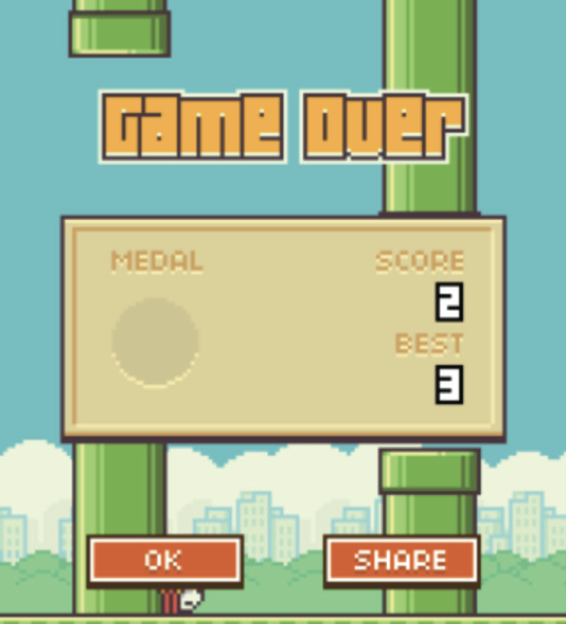Wasting time for years- the futility of handheld games
“It’s all in the geometry behind it, you got to angle him right,” sophomore criminal justice major Mackie Ferguson said on the app Flappy Bird, which has been on the top charts in the Apple App store for the past several weeks. “I curse the day I downloaded this app.”
Ferguson looked down again at her phone, playing the game after a long day of class.
Flappy Bird has since been taken down from the App store, but this is not going to stop those who already have it from continuing to play it. Our generation is used to having handheld electronic games, and the addiction to futile, mindless apps will probably continue.
I sat in the commuter lounge in Kessel with three of my friends the other day. I went down to get some food, and re-entered the commuter lounge to a scream of terror. “What’s wrong,” I said with concern.
My friend had failed to beat his high score on Flappy Bird, and had apparently felt the need to scream and double over in defeat.
After making fun of this poor, defeated, Flappy Bird playing boy, the occupants of the table went right back to staring at their phones. Flappy Bird had taken over the dinner conversation of my table, and it was evident that Flappy Bird would be the main activity for the next hour or so.
I was a bit disappointed, considering it was a Thursday night and I felt that going out somewhere had been forsaken for a session of playing an iPhone game, and a stupid one at that (at least in my opinion).
These occurrences lead me to think about how much time is wasted by playing apps.
We all know this already, of course. I regret downloading Flappy Bird just as so many other people do. Whenever I am angered by not defeating my high score, I can’t help but flash back to first grade when I got my first Gameboy, and I would get angry with my younger brother for hogging the one Donkey Kong game we shared.
Apps and simple electronic handheld games were designed distinctly for children and teens back then, and were often played during long car rides or during rainy days when you couldn’t go out for recess.
But now, Flappy Bird is being played on a Thursday night in the Pace commuter lounge, offering me a chance to make fun of all my friends for being so obsessed with a game- which, admittedly, is really just a way for me to cover up my anger at my high score being a mere eight.
As a six-year-old child, I had expected adulthood to come with a cell phone, intelligent conversation, and really nice shoes, which it has. But I did not expect adulthood to come with games that I would have loved to play when I was six, some of which are very similar to ones I had on my Gameboy color or Gameboy advance (such as Pac Man.)
Back in the day, it was a feat when the screen on a Gameboy or other handheld device could light up. A light up screen meant playing games in the dark after we were supposed to be asleep- a revolution that occurred circa 2005 when the Gameboy Advance SP came out (good times).
Growing up, I thought I would read the newspaper more or perhaps spend my time drawing. But the time I spent playing games as a kid is still devoted to just that- playing games.
I think the same goes for many people in this generation. Time spent devoted to defeating high scores is still spent on that activity, no matter how old we are.
I lost my Gameboy color when I was seven, and I was nearly certain back then that I would never play a handheld electronic game again, contenting myself with reading and coloring instead.
I was very wrong in thinking that.
Futile and mindless games like Flappy Bird and Candy Crush Saga are continually played: there is no tangible reward for playing these games, and arguably there is no intangible reward either.
“It’s almost sarcastic, it’s like it’s mocking us,” said junior communications major John Robb on the simplistically-styled Flappy Bird.
I was discussing with him the fact that there was no reward, no level up, no new “worlds” or places for the bird to travel.
You turn on the game knowing that the bird will die, but not knowing when.
But still we play this and other games to waste time, upgrading game systems and handheld devices year after year since the 1990s.
My suggestion is to put down the game and devote a little bit of game time to reading the Pace Chronicle instead.
But then again, perhaps my suggestions and anger at the futility of Flappy Bird stem from the fact that my high score isn’t even double digits.

